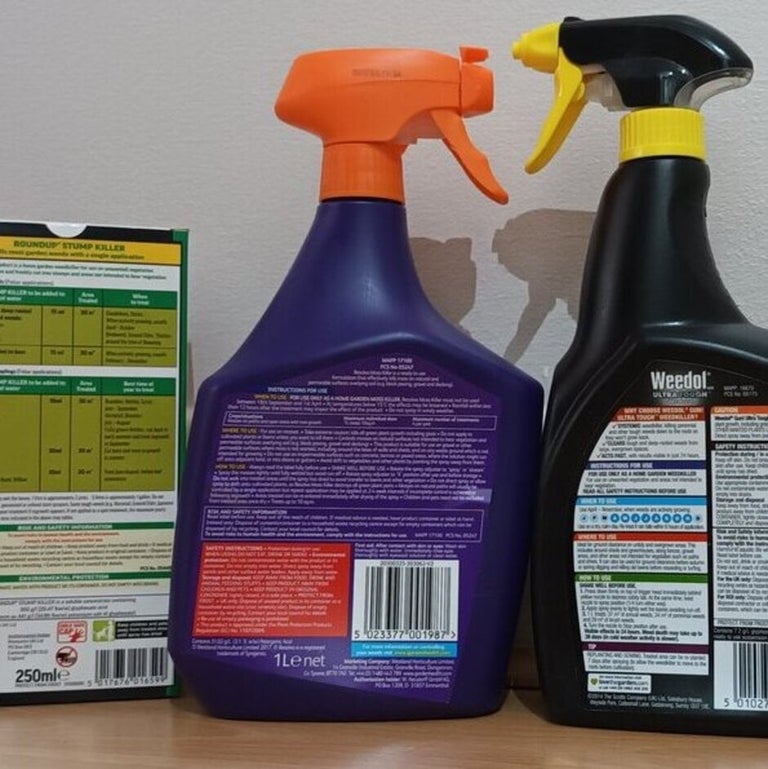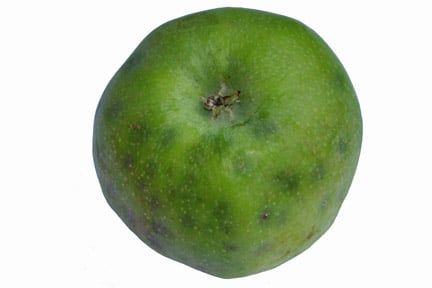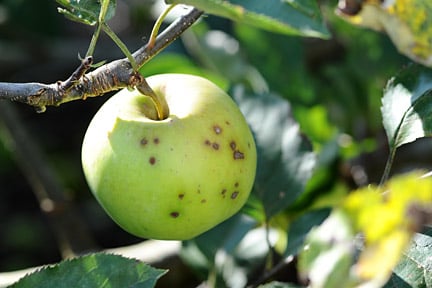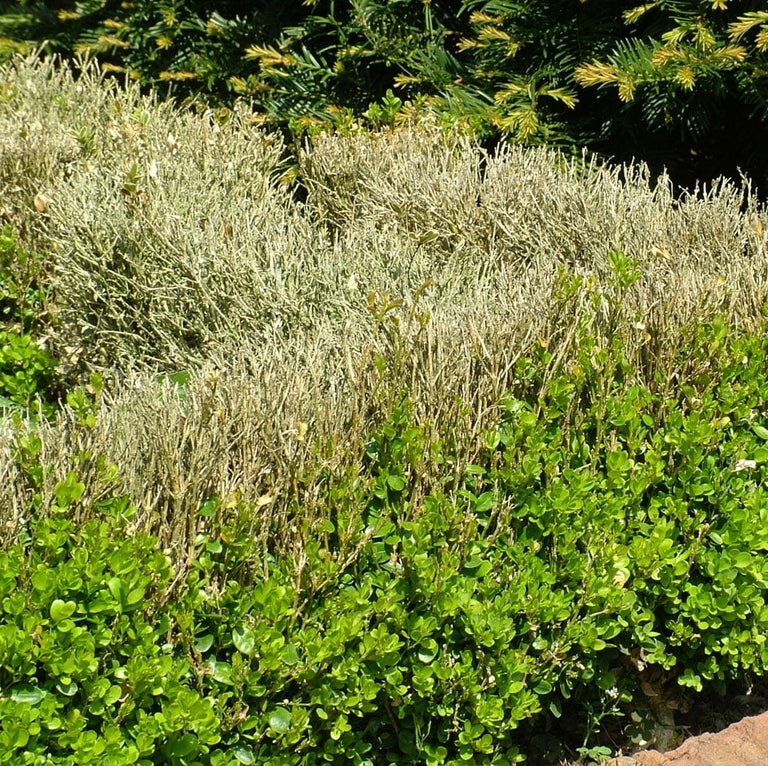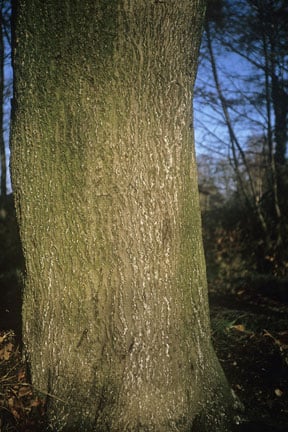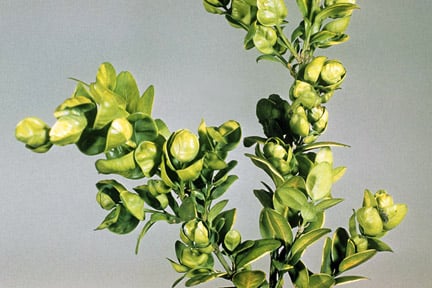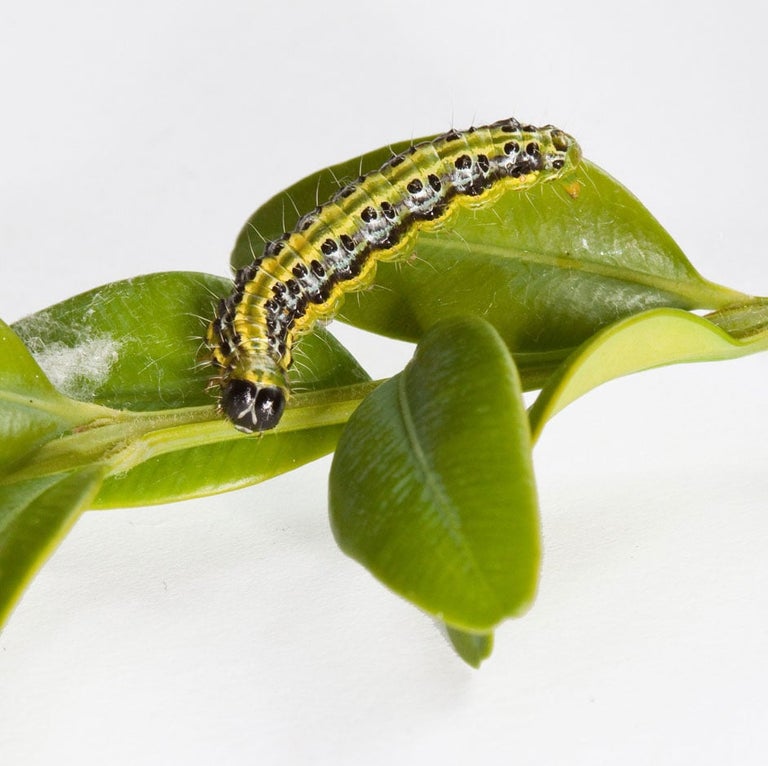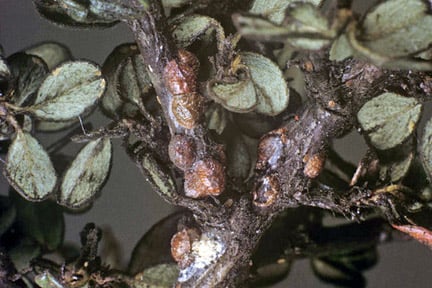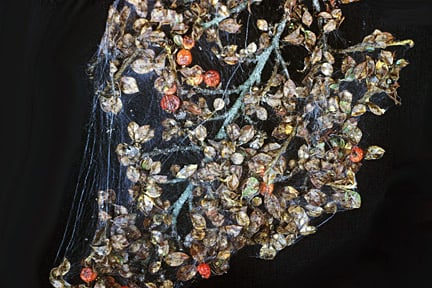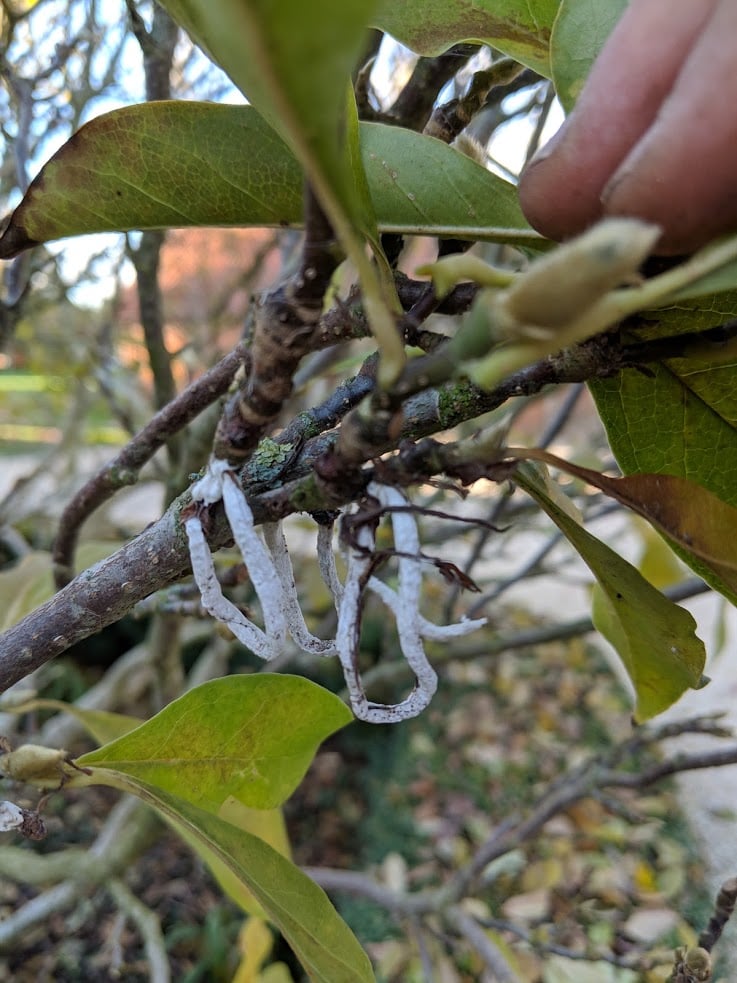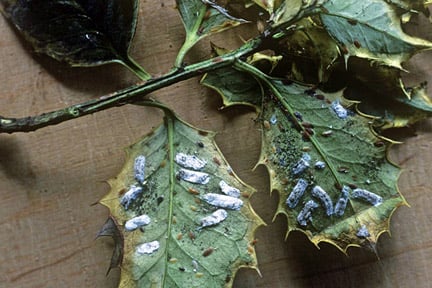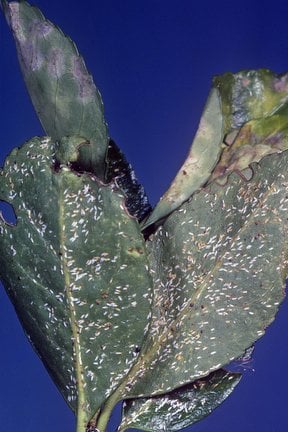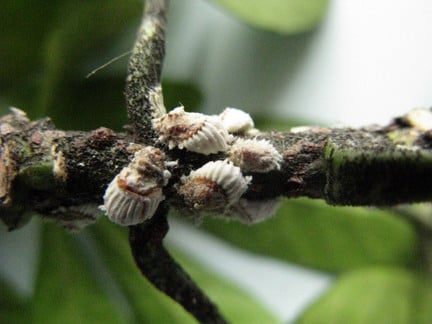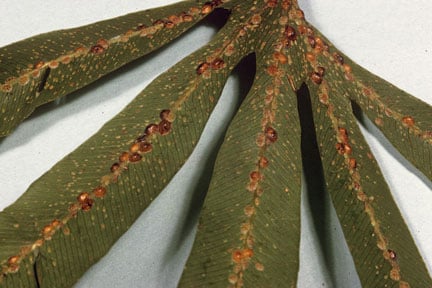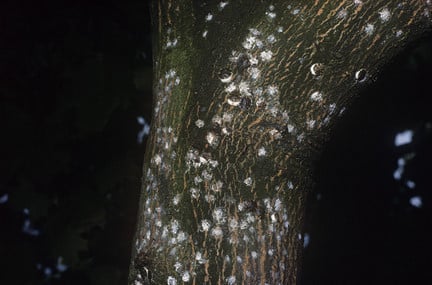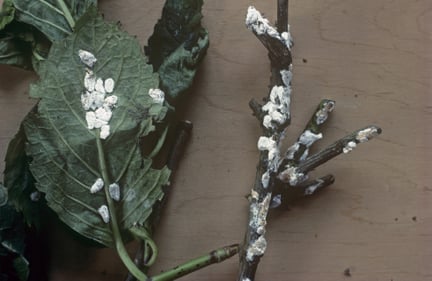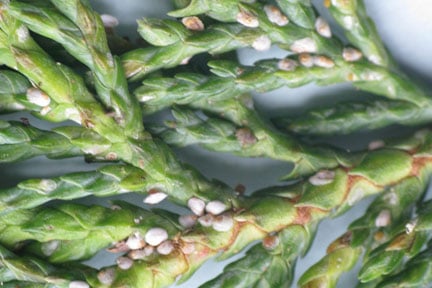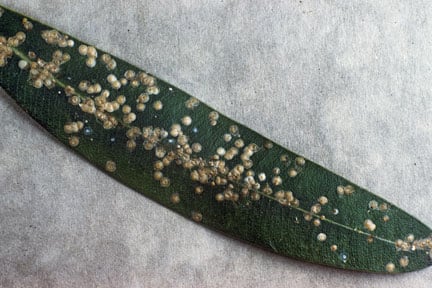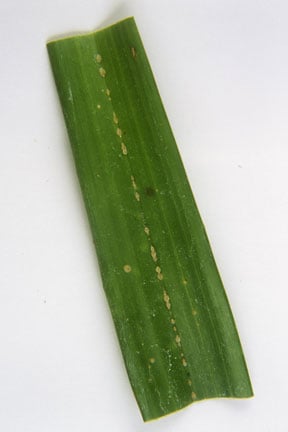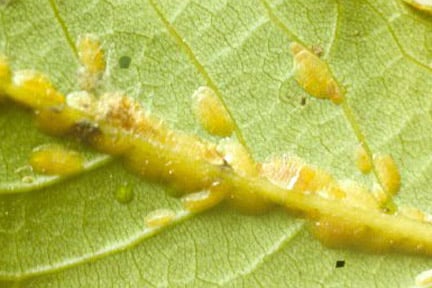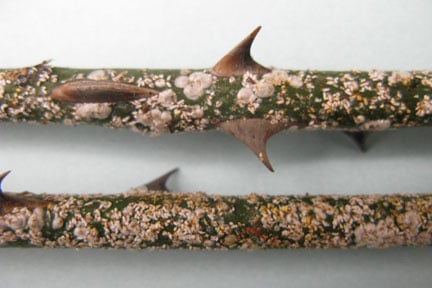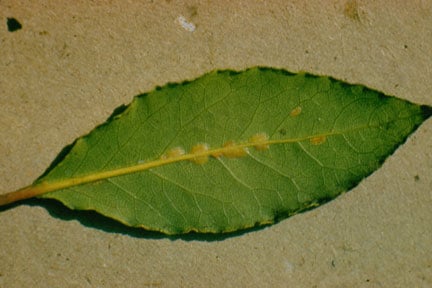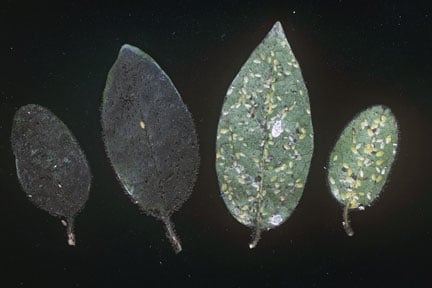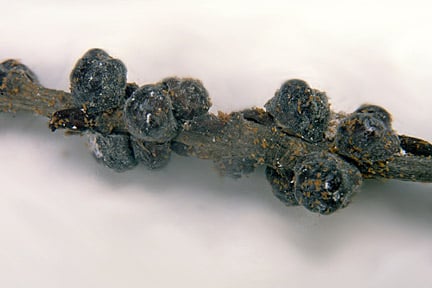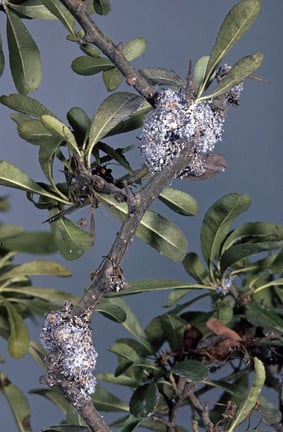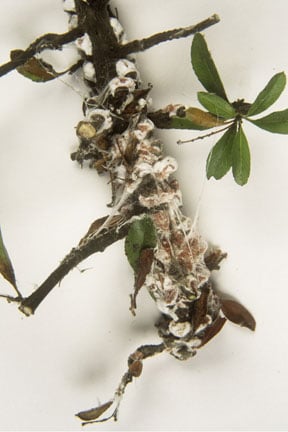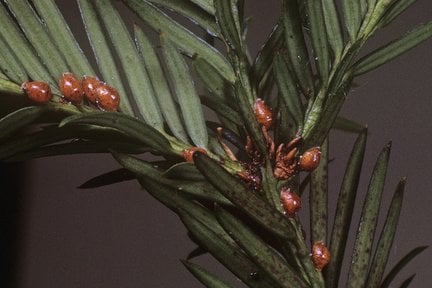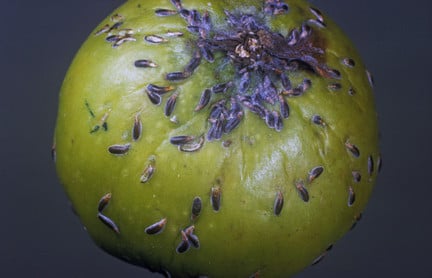
Quick facts
Common name - Mussel scale
Scientific name - Lepidosaphes ulmi
Plants affected - Apple, box, Ceanothus, Cornus, Cotoneaster and some other shrubs
Main cause - A sap-sucking insect
Timing - Present all year round
What is mussel scale?
Mussel scale is a -sucking insect that lives mainly on the woody stems of its host plants. The small 3 mm long, soft-bodied insects are concealed under shells or scales that resemble the shellfish of the same name. This is one of several species of scale insects encountered by gardeners.
Scale insects are sap sucking true bugs belonging to several families in the Hemiptera. Typically the adults are immobile having a flattened or raised appearance, with no visible legs. They often look like a ‘scale’ on a leaf or stem, many species produce a white wax often covering egg masses. There are more than 100 species found in Britain, 26 of which have been introduced. More than 25 species can be found in gardens or on houseplants.
Symptoms
Mussel scales are up to 3 mm long and brownish black in colour. Their shape is similar to that of the shellfish known as mussels. Heavily affected plants will lack vigour and stems may dieback, especially box (Buxus). On apple the scales sometimes spread onto fruits. Old dead scales often remain attached, so the scales can be seen throughout the year.
Light populations of mussel scale are of little consequence but heavy attacks can affect the host plant's growth. When mussel scale spreads onto apple fruits it makes them less palatable, although the scales can simply be wiped off.

Management
- Where possible tolerate populations of scale insects. Well-tended healthy plants are able to tolerate light populations of these insects and so they do not necessarily require management
- Encourage predators in the garden, some ladybirds, parasitoid wasps and some birds will eat scale insects
- Large populations of mussel scale often develop on plants that are already lacking vigour. Heavily affected plants can be removed and replaced, however apples and other plants in the rose family can be susceptible to replant diseases.
Biology
Mussel scale has one generation a year. Female scales deposit their eggs underneath their bodies during late summer-early autumn, so they are concealed by the shell or scale that covers the insect. The eggs overwinter and hatch in late May-June, when the scale nymphs crawl around for a while and can be distributed on wind currents, before selecting somewhere to feed. This is mainly on the but scales can develop on the fruits of apple and Cotoneaster. The scales reach the adult stage in late July-August.

